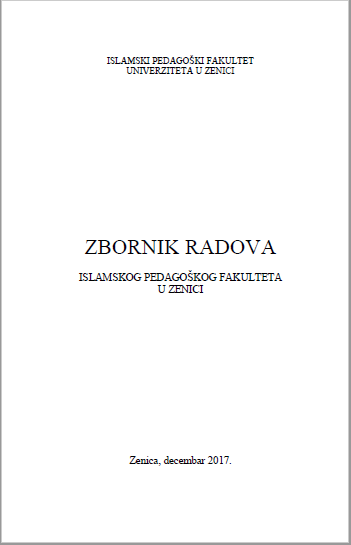KERBELA – KRITIČKI OSVRT
KARBALA – A CRITICAL REVIEW
Author(s): Mina Valjevac, Mensur ValjevacSubject(s): Islam studies, History of Religion
Published by: Islamski pedagoški fakultet Univerziteta u Zenici
Keywords: Karbala; sources; Asshura; imprecation;
Summary/Abstract: The peace treaty between hadrat Hasan and hadrat Muawiya brought peace to a new Islamic state. According to it, the authority was supposed to be given to hadrat Hasan after hadrat Muawiya, who could not name the commander of the faithful after himself. However, hadrat Muawiya did not adhere to the treaty, but introduced a hereditary monarchy and named his son Yazid as the heir to the throne. Hadrat Husain could not acknowledge him as the new caliph, since it would have presented a violation of the peace agreement. Thus, the Kufians offered to acknowledge hadrat Husain as the caliph. However, they betrayed him and left him to Yazid's army who carried out the massacre of the noble family (Ahlul-Bayt) of the Prophet of Allah (p.b.u.h.) in Karbala. On the other hand, the Prophet of Allah (p.b.u.h.) had clearly foreshadowed the establishment of a monarchy after the period of righteous caliphs, as well as the hadrat Husain’s death. This event at Karbala presents the confirmation of the value of the Day of Ashura, marked by the Prophet of Allah (p.b.u.h.) due to its specific exceptionality. Hadrat Husain was chosen on the chosen day for the chosen death, i.e. the death on the Allah's way (shahadah). Islamic scholars, such as Es-Sujuti and Ibn Taymiyyah, consider it completely justified to imprecate Yazid for the murder of hadrat Husain, the massacre on Ahli-Bayt, and the desecration of Medina and Makkah.
Journal: Zbornik radova Islamskog pedagoškog fakulteta u Zenici
- Issue Year: 2017
- Issue No: 15
- Page Range: 193-216
- Page Count: 24
- Language: Bosnian

